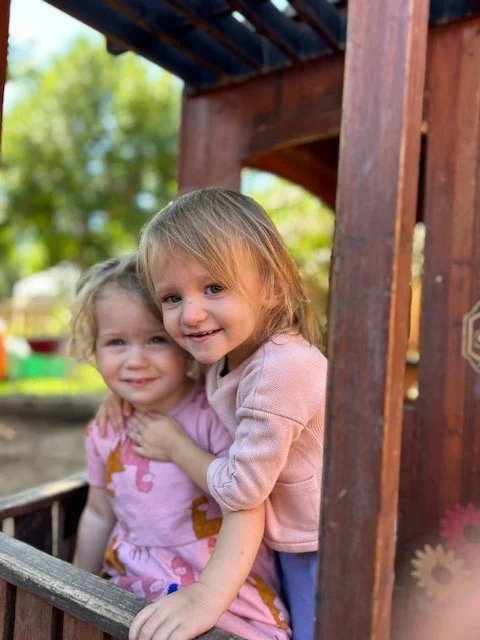Five Ways to Nurture Genuineness in Children
While it may not be possible to teach genuineness, we can inspire it. Through our own genuine relationship with ourselves and with others, we become living examples for children. They don’t need lectures on authenticity—they need to see it, feel it, and experience it in relationship.
Here are five ways we can help children feel more comfortable with who they truly are:
1. Not Too Tall
One of the simplest yet most powerful ways to connect with children is to meet them at their level. That means kneeling or sitting down, making real eye (and heart!) contact, and listening deeply.
Imagine having to talk with someone who’s 8 feet tall—you’d constantly be craning your neck just to see their face. For children, that’s daily life with adults. By literally coming down to their level, we show respect and presence.
When children share their feelings, we can accept them unconditionally, even if our response ultimately guides them in a different direction. For example:
“I can feel you’re really sad. I’d be sad too if I couldn’t… And we also need to…”
This combination of empathy and gentle guidance helps children trust their own emotions and feel seen.
2. Cultivate Independence
Children thrive when they can do things for themselves. Every opportunity for independence builds confidence and comfort with who they are.
Simple changes can make a big difference:
A snack drawer with healthy options they can reach
A small pitcher of water (and a sponge for spills!)
A low hook for their coat
Choices between two or three outfits, books, or lunch items
These daily chances to succeed on their own cultivate a sense of empowerment and self-worth.
3. Uncover the Negativity Bias
As humans, we tend to focus on what went wrong rather than what went well—a survival habit known as the negativity bias. But when we emphasize the negative, children learn to do the same.
By intentionally cultivating appreciation and gratitude, we can shift the balance. This doesn’t mean ignoring challenges, but it does mean giving equal, if not greater, attention to the positive. The more we free ourselves from the pull of negativity, the more easily we (and our children) can rest in our genuine selves.
4. Permission to Feel
Genuineness doesn’t mean being cheerful all the time. It means being real. When we allow ourselves—and our children—to feel sadness, frustration, or anger without shame, we normalize these experiences as part of being human.
Suppressing or acting out emotions creates tension and disconnection. Acknowledging feelings, on the other hand, opens space for authenticity and resilience.
5. Kindness for Ourselves
A quote that we have posted in the wall of our break room at Alaya by Chogyam Trungpa Rinpoche reminds us that we must begin with kindness to ourselves:
“We have to learn to be kinder to ourselves, much more kind. Smile a lot, although nobody is watching you smile. Listen to your own brook, echoing yourself.”
Children learn as much from how we treat ourselves as from how we treat them. Practicing self-care—whether it’s 10 minutes of quiet in the morning, a walk, or scheduling personal time each week—reminds us (and them) that our well-being matters.
When we feel nurtured, we naturally relax, show up more authentically, and model for children what it looks like to live genuinely.
We can’t force genuineness, but we can create the conditions where it naturally flourishes. By meeting children where they are, empowering them with independence, modeling gratitude, embracing real feelings, and caring for ourselves, we inspire them to feel safe and comfortable being exactly who they are.



